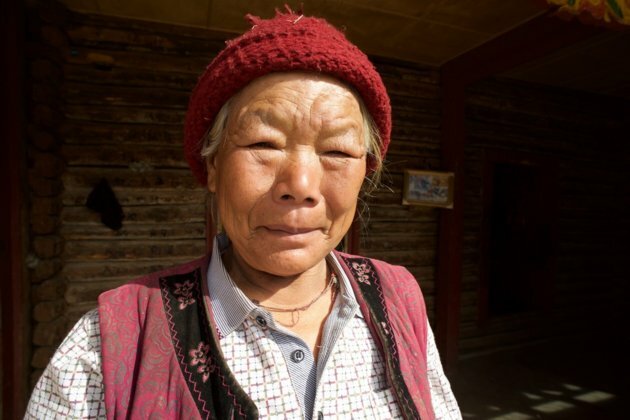Women's health is better when women have more control in their society
The Conversation
26 Jan 2021, 02:10 GMT+10

Gender disparities in health are not a phenomenon unique to the pandemic. Long before COVID-19, women made less money than men, had more child care responsibilities and were at increased risk of gender-based violence. But now, the pandemic has made them, and their children, even more vulnerable.
Women typically live longer than men but experience generally worse health, including higher risk for many chronic diseases, a phenomenon often referred to as the health-survival paradox. Many see this as due to biological differences between women and men. Female reproductive hormones affect many tissues in the body; pregnancy and childbirth come with additional risks to health.
But a large body of research suggests human health is strongly influenced by social circumstances. Living in societies that are more unequal is associated with negative health outcomes. Preferences for sons can cause neglect of daughters, which can lead to poor health and even death. What role, then, do gender norms play in subtler gender health disparities?
Two of us are anthropologists, the other an epidemiologist. Together our team developed a study to investigate how male-biased versus female-biased gender norms impact health.
A unique comparison
That study, published in Proceedings of the National Academy of Sciences, was conducted in two farming communities in southwestern China. Both communities, part of the Mosuo ethnic minority, share a common language, religion and rites of passage. They differ, however, in one key way that made this unique study possible: kinship.
Some Mosuo pass land and other resources from mothers to daughters. Anthropologists call this system "matriliny." The role of men in Mosuo families is de-emphasized, although some take active roles as fathers and husbands. About 30% are in "walking marriages": men and women are together at night, but do not formally marry. Instead, the men remain part of their mother's or sister's household. The men in matrilineal communities often provide financial support to women, and the walking marriages, though easy to dissolve, are often monogamous.
Compare this with a smaller, less well-known population of "patrilineal" Mosuo, who typically marry monogamously and pass inheritances from fathers to sons. They are more similar to many Euro-American families, where gender norms typically empower men.
With that as background, we began to wonder if the Mosuo would show evidence of improved health for women in matrilineal communities, where women have greater autonomy and access to resources. This has proved very difficult to test, because communities differing in kinship and degree of women's autonomy also differ in other ways.
Our team traveled to hundreds of households in both the patrilineal and matrilineal communities of Mosuo. We asked participants about their social, economic and household circumstances. We measured their blood pressure and collected small specimens of blood for other health assessments. From that, we could compare matrilineal and patrilineal communities, and found this: Gender disparities in health were completely reversed in matrilineal communities.
For women with greater autonomy, better health
Briefly, women's health was poorer than men's in patrilineal settings. But it was better than men's in the matrilineal communities. There, women's rates of chronic inflammation were roughly half of men's, with rates of hypertension roughly 12% lower.
Both chronic inflammation and hypertension are early indicators of long-term chronic disease. Both put people at higher risk for cardiovascular disease, diabetes, neurodegenerative disorders and death. The poorer health that women experienced in the patrilineal Mosuo communities likely occurred due to differences in daily experiences, including stress that accumulated both in the short and long term.
Our findings challenge simplistic notions that biology is the only or primary determinant of gendered health differences. This is not a new revelation, but the study suggests an even stronger role for culture than previously evidenced.
[You're smart and curious about the world. So are The Conversation's authors and editors. You can read us daily by subscribing to our newsletter.]
This does not mean biology plays no role in the health differences between men and women. Virtually all diseases are biological at the cellular level. But emphasizing only biological differences assumes everything else between men and women is equal. This is rarely, if ever, the case.
Child care and household duties are easier when women have help and autonomy. Mosuo women in both matrilineal and patrilineal communities take on substantial responsibility for both. But those in matrilineal communities do so with greater autonomy and more support from relatives and childhood friends. Those in patrilineal communities are more isolated from their sisters and often take on household chores with less help.
These findings are relevant to women's health, not just in Mosuo communities, but elsewhere. Everyone's health is affected by their autonomy and access to support, even nonhumans. Now, with a better understanding of how kinship and gender norms can impact women's health, we can work to lessen health disparities and decrease the ever-growing burden of chronic disease.
Authors: SiobhУТЁn Mattison - Associate Professor of Evolutionary Anthropology, University of New Mexico | Adam Z. Reynolds - Doctoral candidate, University of New Mexico | Katherine Wander - Assistant Professor, Binghamton University, State University of New York 
 Share
Share
 Tweet
Tweet
 Share
Share
 Flip
Flip
 Email
Email
Watch latest videos
Subscribe and Follow
Get a daily dose of Haiti Sun news through our daily email, its complimentary and keeps you fully up to date with world and business news as well.
News RELEASES
Publish news of your business, community or sports group, personnel appointments, major event and more by submitting a news release to Haiti Sun.
More InformationInternational
SectionTragedy in Spain: Diogo Jota and his brother die in car accident
MADRID, Spain: Liverpool footballer Diogo Jota and his younger brother, André Silva, have died in a car accident in Spain. Spanish...
Early heatwave grips Europe, leaving 8 dead and nations on alert
LONDON, U.K.: An unrelenting heatwave sweeping across Europe has pushed early summer temperatures to historic highs, triggering deadly...
U.S. military, China, Russia in Space race
President Donald Trump's plans to build a space-based Golden Dome missile defense shield have drawn immediate criticism from China,...
Trump wins $16 million settlement from Paramount over CBS Harris edit
NEW YORK CITY, New York: Paramount has agreed to pay US$16 million to settle a lawsuit brought by U.S. President Donald Trump over...
British PM faces major party revolt over welfare reforms
LONDON, U.K.: British Prime Minister Keir Starmer won a vote in Parliament this week to move ahead with changes to the country's welfare...
White House meeting between Trump, Netanyahu on July 7
WASHINGTON, D.C.: President Donald Trump will meet Israeli Prime Minister Benjamin Netanyahu at the White House on Monday. President...
Business
SectionEngine defect prompts Nissan to recall over 443,000 vehicles
FRANKLIN, Tennessee: Hundreds of thousands of Nissan and Infiniti vehicles are being recalled across the United States due to a potential...
Microsoft trims jobs to manage soaring AI infrastructure costs
REDMOND, Washington: Microsoft is the latest tech giant to announce significant job cuts, as the financial strain of building next-generation...
Stocks worldwide struggle to make ground Friday with Wall Street closed
LONDON UK - U.S. stock markets were closed on Friday for Independence Day. Global Forex Markets Wrap Up Friday with Greeback Comeback...
Nvidia briefly tops Apple’s record in AI-fueled stock rally
SANTA CLARA, California: Nvidia came within a whisker of making financial history on July 3, briefly surpassing Apple's all-time market...
ICE raids leave crops rotting in California, farmers fear collapse
SACRAMENTO, California: California's multibillion-dollar farms are facing a growing crisis—not from drought or pests, but from a sudden...
Trump signals progress on India Trade, criticizes Japan stance
WASHINGTON, D.C.: President Donald Trump says the United States could soon reach a trade deal with India. He believes this deal would...













